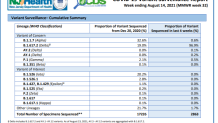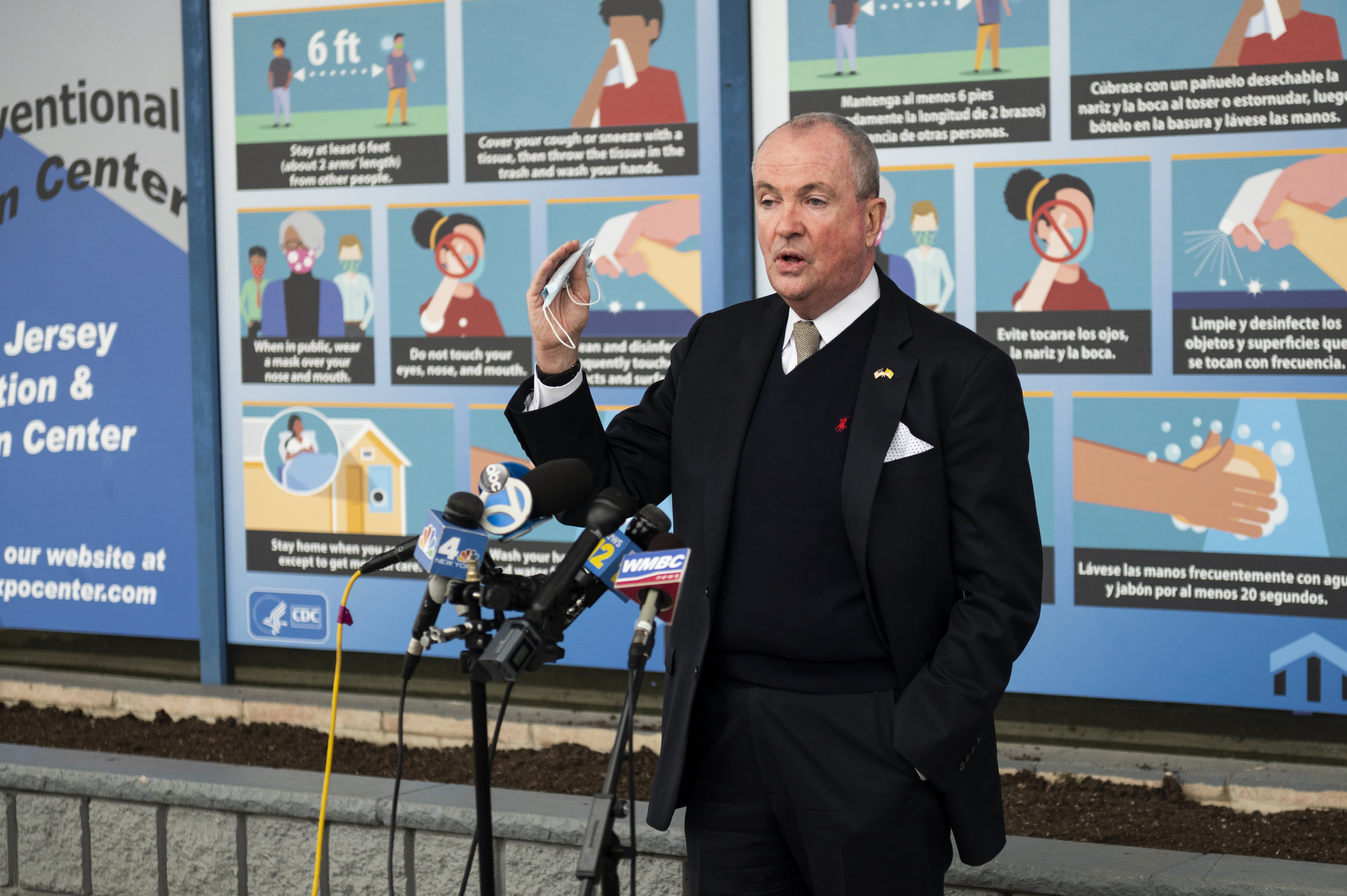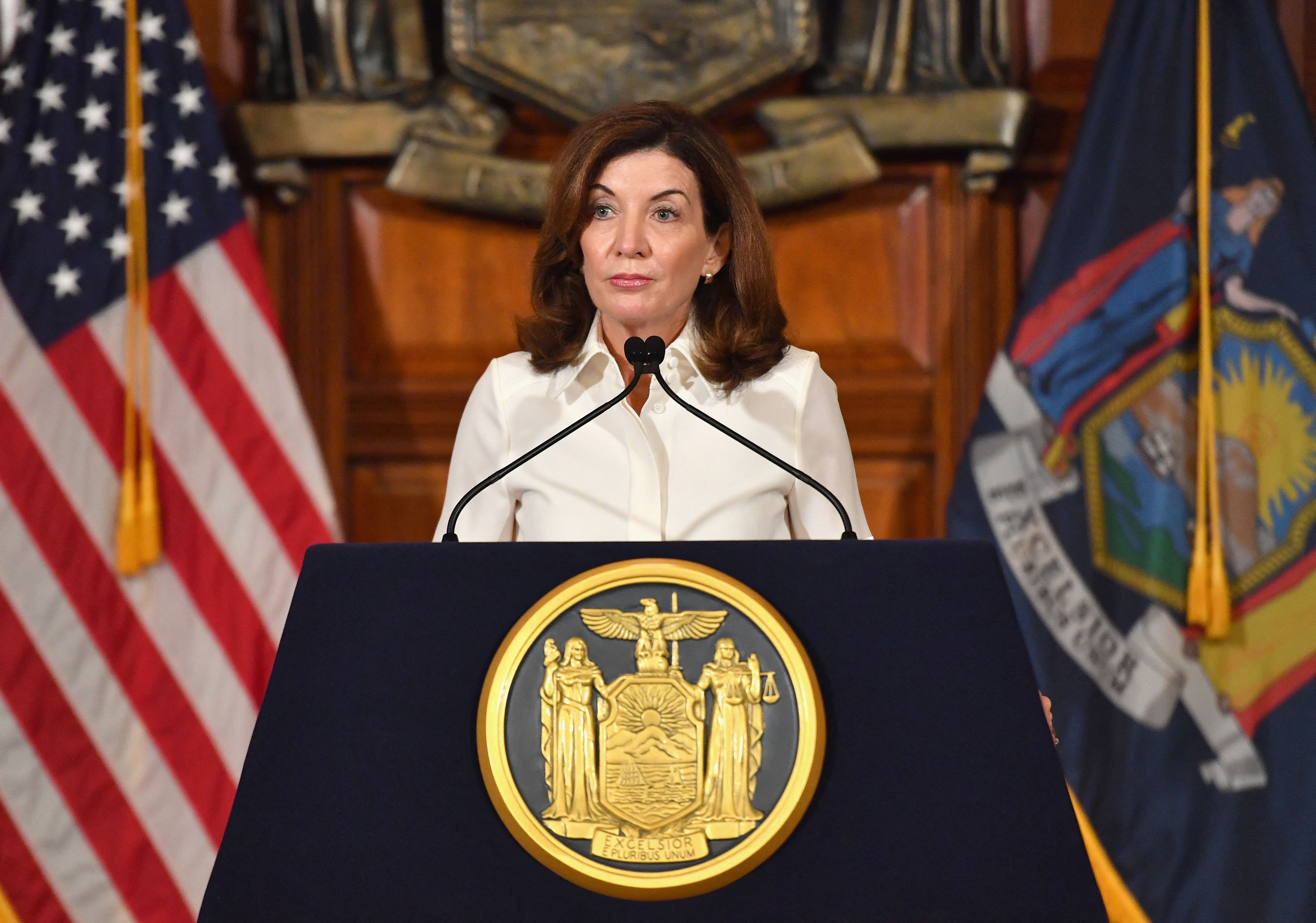What to Know
- COVID hospitalizations in New Jersey are at their highest total in more than three months, an increase Gov. Phil Murphy has long said is almost entirely attributable to spikes in low vaccination rate areas
- Murphy said Monday he expects the state to start administering COVID booster shots for fully vaccinated people in exactly three weeks
- He won't extend pandemic-related federal unemployment benefits, citing the cost, beyond the expiration date Saturday and re-upped reminders that everyone in NJ schools must wear masks for now
New Jersey expects to begin administering its first COVID booster shots to the most vulnerable in three weeks, while Gov. Phil Murphy said Monday he won't extend pandemic unemployment benefits to roughly 500,000 residents when the program expires Saturday. He says continuing the latter simply costs too much.
Shuttered vaccine mega-sites will reopen "for a concentrated period of time" to accommodate an anticipated flood of people seeking booster shots, Murphy said.
Should the Biden administration opt to shorten the timeline from eight months to five months as has been a reported consideration, New Jersey expects an intense deluge of people looking for the added protection but says it'll be ready to handle it.
Get Tri-state area news and weather forecasts to your inbox. Sign up for NBC New York newsletters.
On the unemployment front, President Joe Biden had said states could use COVID relief funds to extend the program beyond its Sept. 4 expiration, but Murphy firmly put the onus on the feds and said no other state was extending it independently.
"The proper way to extend federal UI benefits is through federal action, not a patchwork of state ones," the Democrat said. "The reality is that continuing the $300 per week benefit through state resources would be cost-prohibitive."
Murphy's administration estimates the weekly cost to New Jersey to extend the program would be at least $314 million and up to $584 million, which would be at least a billion-dollar-a-month drain on the state. To date, the state has distributed $33.7 billion in COVID-related unemployment assistance to workers and families.
He said the Department of Labor stands by to provide additional assistance to those in need.
The end to the unemployment insurance program benefits comes as New Jersey, and virtually the entire country, grapple anew with COVID case surges driven by the delta variant that have pushed some states to reinstate mask or vaccine mandates.

New Jersey's statewide COVID hospitalizations topped 1,000 Wednesday for the first time in three and a half months and have continued to incrementally climb, while delta now accounts for more than 97% of all positive COVID samples sequenced in the last four weeks, mirroring a national trend that has yet to abate.
The spikes in cases, especially pronounced in low immunization rate communities, across New Jersey are also reflective of the increases in neighboring New York, Connecticut and the entire country, with just 61.2% of the eligible population nationwide being fully vaccinated as of the CDC's latest report.
According to the New York Times, New Jersey ranks sixth in the nation in terms of adult population fully vaccinated with a 73.3% rate. But people ages 12 to 17 account for just 6% of the immunized, New Jersey's own data shows.
Anxiety is increasing across the board, particularly where schools have opened or will shortly reopen fully in person. Last week, New Jersey joined the growing list of states to require teachers to be vaccinated for COVID-19 this fall. The current mandate for healthcare workers is also expanding to include all state employees.
Murphy announced earlier this month that school staff members, visitors and students from kindergarten to 12th grade are required to wear masks in New Jersey schools. He re-upped the reminder in the strongest of forms on Monday.
"Our in-school masking policy is not a polite suggestion. We do not and will not take lightly to any district or any school that tries to finagle their way out of their responsibility to public health," Murphy said.
"If you try to do so, you are only putting your students, educators, support staff, administrators, and everyone else in your school, plus by the way, your families, their families and your communities at risk," he added. "This is no time for selfishness or political posturing."
Mjurphy also welcomed any schools that don't have a sufficient mask supply to reach out to the state for assistance, noting New Jersey has plenty on hand.
New York's new governor, Kathy Hochul, reinstated a universal mask requirement for "everyone entering our schools" on her first day in office. The Department of Health directive officially came down late Friday. Learn more about that here.
Hochul supports a vaccination or weekly test-out option for all New York school personnel and says she is working with partners to make that happen.
The New Jersey mandate announced a week ago requires all school personnel working in grade levels from pre-K-12 to be fully vaccinated by Oct. 18. Employees who do not comply by that deadline must undergo regular testing.
“Scientific data shows that vaccination and testing requirements, coupled with strong masking policies, are the best tools for keeping our schools and communities safe for in-person activities,” Murphy said.
His executive order applies to all schools statewide, including public, private and parochial preschool programs. His mandate also expands to all state employees – including those at state agencies, authorities, and public colleges and universities – who face the same Oct. 18 deadline. Previously, staff in New Jersey's hospitals, corrections facilities and assisted living centers had to get inoculated by Sept. 7.
It's unclear how many state employees, teachers and child care workers remain unvaccinated in New Jersey. Murphy says his administration has heard from local reports that an overwhelming majority of teachers are already vaccinated.
The state's biggest teachers union, the New Jersey Education Association, supported the order.
“This Executive Order is another example of Gov. Murphy’s unwavering commitment to health and safety of NJEA members and the students we serve,” said union President-elect Sean Spiller.
Two-thirds of New Jersey voters, including parents of school-age children, support the state’s school mask mandate, but they are more divided on the idea of requiring COVID-19 vaccinations for age-eligible children, a Monmouth University Poll published Monday found.
More on COVID-19
California, Washington, Oregon and Connecticut are the only states so far to enact the statewide requirement for teachers due to rising coronavirus cases. New York City, the nation's largest public school system, announced on Monday it would require vaccination for all school employees without a test-out option.
The latest vaccine fervor comes as hospital admissions for confirmed COVID cases in kids under 18 are at their highest level in three months in the greater New York area -- and nationally, they're at the highest levels recorded yet.
Earlier this month, New Jersey's health commissioner said the percentage of those hospitalized with COVID who were children had tripled since January. With kids under 12 still unable to get the shot, masks, social distancing and vaccine mandate for teachers can help drive down cases and protect the unvaccinated.
"All these developments point to an urgent need for everyone to get vaccinated, especially for parents to take their 12- to 17-year-olds to be vaccinated as soon as possible," New Jersey Department of Health Commissioner Judy Persichilli said.
Not sure how the process works? Check out our handy tri-state vaccine site finder and FAQs here
New York City and New Jersey Vaccine Providers
Click on each provider to find more information on scheduling appointments for the COVID-19 Vaccine.
Data: City of New York, State of New Jersey • Nina Lin / NBC



